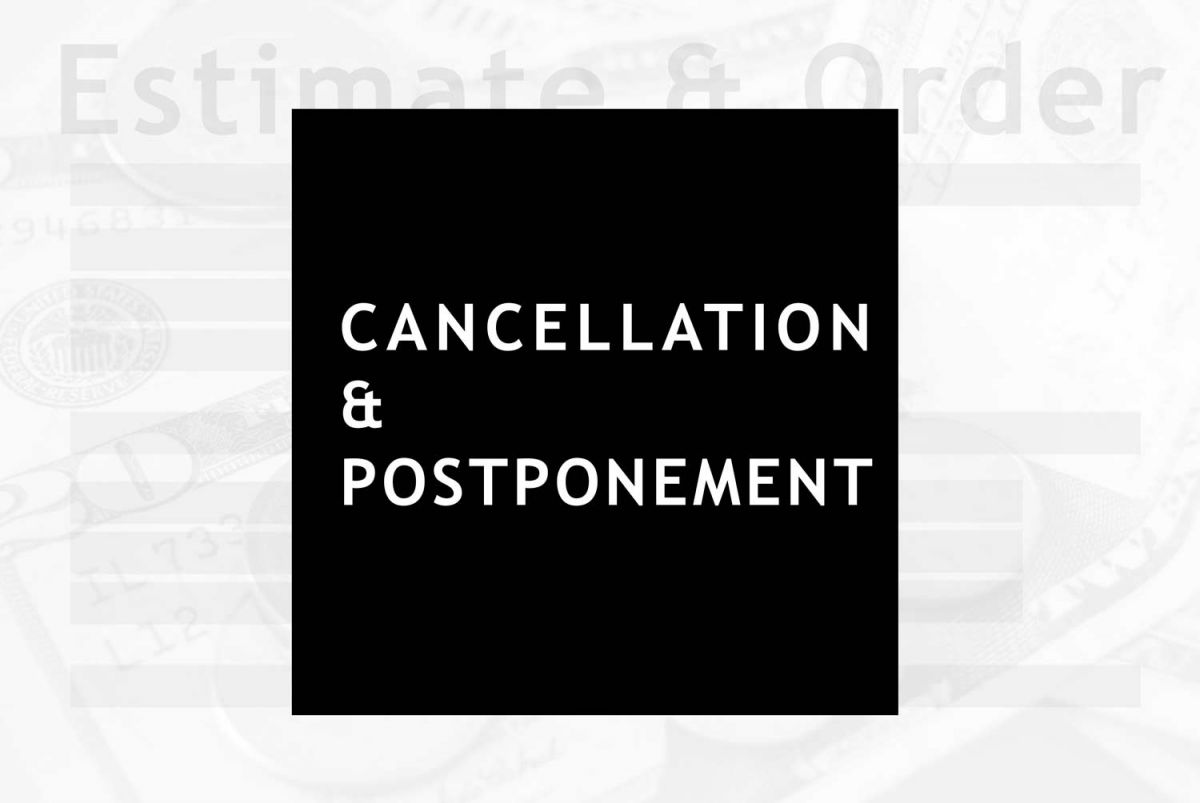
Handling of Postponement and Cancellation in the photography INDUSTRY: a policy is an important instrument to create transparency.
A Cancellation and Postponement (Rescheduling) Policy in a service agreement for photo shoots and other services in a photography business helps both parties to avoid surprises later.
Agencies and professional art buyers, of course, know the ins and outs of that topic but smaller clients or even bigger clients with less experience in the art buying process might value some insight.
A signed service agreement together with a deposit or retainer RESERVES a time slot to perform the booked project.
There are small projects and there are more complex projects: small ones involve less or no planning and pre-production — complex ones or full productions require a lot of pre-work before the actual photo shoot e.g. planning, prep, external resource bookings, scouting, casting, concepts.
The project starts with the first tasks performed which can be way before the shoot date. The referenced time-slot for the project might be in simple cases just the shoot date and post-production but for complex projects it could be a time stretch ranging from days to weeks.
Professional photographers can only do so and so many projects per year because you can’t overbook your schedule without running in time issues — every good project planning always includes some buffer time to accommodate the ‘unexpected’.
Each cancellation creates an opening in the schedule of the photographer.
Each postponement creates the same opening for that originally reserved time-slot — a postponement is …in its nature… a cancellation followed by booking a new time slot.
Can a cancellation or postponement be free of charge?
Once you discuss a project with a client, you put some thoughts or even research into it, assess the feasibility and needed effort and resources, create a schedule, and so on.
Then, with the signing of the service agreement, the time slot for the project is RESERVED, and together with an advance fee and expenses payment the parties assure each other that they are serious about the project.
If cancellations and postponements would be, by default, ‘free’, it would constitute a non-obligation agreement, which makes not much sense (to have it at all) and would allow a buyer to sign several agreements for a project and not being serious about it, but just to secure a time slot may be with more than one vendor and later decide which one plays best. Everyone who is in the industry – for a long time – has accumulated enough experience to know that everything can happen and ‘has seen it all’.
Cancellation & Postponement with low costs involved
My cancellation and postponement policy is brief and follows the industry standard by stating that a certain percentage of certain fees, let’s say 50% of fees, and 100% of incurred expenses become due. My policy is generic because it cannot have a provision for any specific circumstances that surround the cancellation or postponement we would need weeks to go into every detail, which is not happening and possible in the real world. To address specifics and looking for cost savers will happen when an actual cancellation / postponement happens und all details are available.
Seems fair, I think: photographers must try to rebook the cancelled time slot, and of course, if there were already expenses involved, they need to be paid by the client.
However, my goal is to make a postponement as smooth as possible for the client, however, depending on the complexity of a project there might be a portion of tasks that requires a re-do, which might involve costs. The smaller the project, the more likely it is to refill the created opening in the calendar with other small tasks (like internal tasks, and editing, etc.) and we know that small projects have not much prep work involved. Therefore, I probably don’t care about rescheduling formalities and will try to do my best to make things happen for a client.
For larger projects let’s have the goal to keep it fair and manageable for both sides.

